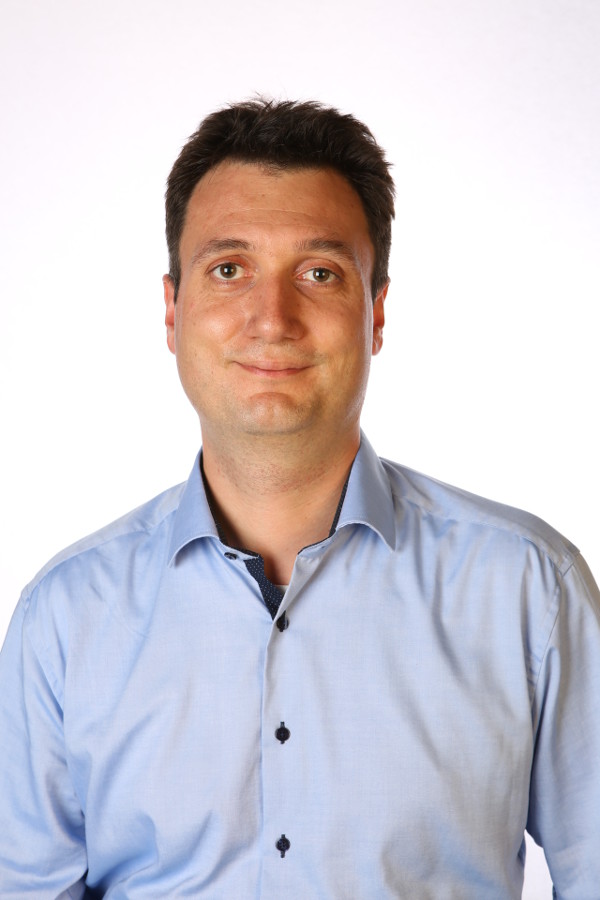Keynote
We have the pleasure of welcoming our keynote speakers at CompSys'22.
| Wednesday 8 June, 16:00-17:00 |
| Title: 25 Years of Parallel and Distributed Computing Research in ASCI (slides available here) |
| By Henri Bal |
| Vrije Universiteit Amsterdam |
| Abstract: This talk discusses earlier and current research on parallel and distributed computing that I did in the context of the ASCI research school. It looks back at the origins and impact of ASCI and its DAS (Distributed ASCI Supercomputer) infrastructure. It then discusses several research projects, including the Ibis distributed computing project, many-core (GPU) programming, smartphone computing & IoT (Swan), and edge/cloud computing (Clownfish). Throughout the presentation, I will also cover numerous applications, from domains like imaging, AI, climate modelling, astronomy, and airport surveillance. |
| Short bio: Henri E. Bal is a full professor of Computer Science at the Vrije Universiteit, where he leads the High Performance Distributed Computing group. He also is the head of the Computer Systems section of the Department of Computer Science and chair of the Science Committee of the department. He was Scientific Director of the ASCI research school, Member of the Academia Europeana and winner of the Euro-Par 2014 Achievement Award. He has been Program Chair of CCGrid and HPDC and PC member of numerous conferences. |

| Thursday 9 June, 13:30-14:30 |
| Title: BRIDGES – An Advanced Global Infrastructure for Network Experimentation. |
| By Jerry Sobieski |
| NORDUnet |
| Abstract: Over the last 20 years the networks serving the research and education community have become a critical infrastructure to universities and science laboratories the use them worldwide. However, this success has made these networks less malleable and unable to provide the structural or architectural flexibility desired by researchers to experiment with novel approaches to future advanced cyber-infrastructure and services. The next 20 years will usher in many new requirements and capabilities related to cyber-infrastructure that will require a highly flexible, interconnected global canvas that can provide both leading edge performance and a high degree of research malleability to support disruptive experimental service deployments. BRIDGES is high performance testbed networking facility that spans the Atlantic to bind networking and computer science research inititives in US and Europe. This talk will provide an overview of the motivation, architecture, and services concepts BRIDGES is making available to support these research futures. |
| Short bio: Jerry Sobieski is currently co-Principle Investigator on the BRIDGES Project lead by George Mason University in Virginia. BRIDGES is a US National Science Foundation funded program constructing a high performance intercontinental network spanning the Atlantic Ocean to support advanced network and distributed e-science applications among collaborating researchers in the US and Europe.
Prior to this role at GMU and BRIDGES, he worked with Nordic Universities Network (NORDUnet, Copenhagen) as Director of International Research. He served as Activity Leader in the GEANT Project to develop the GEANT Testbed Service – an advanced virtualized service architecture for constructing experimental networks across Europe.
Prior to his work in Europe, he has served as Director of Research at the Mid-Atlantic Crossroads – the regional R&E network serving the Washington DC region, and worked for Internet2 during the design and deployment US R&E backbone network in the early 2000’s. He has led or participated in a number of collaborative international efforts including: The specification the Network Service Interface protocol standard (NSI); the Global Lambda Integrated Facility (GLIF) consortium, the GLIF Automated Open Lightpath Exchange initiative “AutoGOLE” (an international networking testbed spanning multiple continents), and development efforts for ITU protocol standards. |

| Friday 10 June, 11:00-12:00 |
| Title: The Responsible Internet - a new security pillar for the Internet |
| By Ralf Holz |
| Design and Analysis of Communication Systems group, University of Twente |
| Abstract: While our online security posture has improved substantially in the past two decades, suprisingly much still leaves to be desired - in particular, incentives for better security are still oddly misaligned with business considerations. In this talk, we present the Responsible Internet, a new security pillar for the Internet that is agnostic to technological developments and aims at re-aligning security incentives and boosting overall deployment security. In a nutshell, the Responsible Internet is to the Internet what Responsible AI is to Artificial Intelligence: it adds critical properties that provide stakeholders and users with the means to use the Internet safely and securely. These properties are Controllability, Accountability, and Transparency. By showcasing a number of empirical results from the past 20 years, we demonstrate that recording and logging insights into global network operations allows to hold operators accountable and ultimately shifts the incentives for operators towards investing into better security if they wish to remain competitive. We then show how data flows on the Internet can be steered (Controllability) based on these insights into operations (Transparency) and how one can verify that operators also act as promised (Accountability). The Responsible Internet, whose development is currently kick-started in a 2m EUR multidisciplinary project within the Dutch national research agenda, is an enabler of Digital Sovereignty: it gives end-users a way to determine how their data is handled in transit, and it provides new business opportunities for operators. We conclude with an invitation to join this effort and collaborate on this new paradigm. |
| Short bio: Ralf Holz is an Associate Professor in Empirical Security and Internet Evolution in the Design and Analysis of Communication Systems Group at the University of Twente. His research interests revolve around understanding and improving the Internet for everyone, with a particular focus on security aspects. Most recently, he has been working on Global-scale measurement of Internet service deployments and their security Data-driven security mechanisms Analysis of emerging technology and its implications He views his work through the lens of real-world implications. The tech is not always what matters—it’s the embedding in our world that makes it meaningful. Hence, he works with other disciplines and industry alike to make the Internet a safer, more secure, and altogether more interesting and useful place. |
